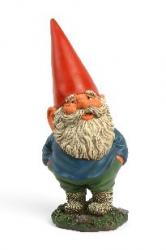The background system for Dungeons and Dragons is one of the most inspired additions to the rules set. Players have a lot of wonderful options that can inspire some great role-playing. For this month, since the Outlander was the only background that was completely nature-focused, we decided to add some additional backgrounds to help create more variety for monstrous characters.
Chieftain (Variant Noble)
Your character has been chosen for a position of leadership within the tribe and has been groomed for this position for some time. How you have been chosen is up to you: perhaps your father was the chief, as was his father before him. Perhaps you were born with a specific birthmark, or your birth was foretold under prophecy, but it means that the shamans have assured your ascension to leadership. You might not be chieftain yet, or your “tribe” consists only of yourself. Whatever the case, your position has afforded you the confidence and ability to lead.
Skill Proficiencies: Insight, Intimidation, and Persuasion.
Languages: One of your choice.
Equipment: A symbol of leadership, such as an ancestral helm, belt, or perhaps an ancient sword that had been wielded by a founding member of the tribe.
Variant Feature: Position of Leadership
Thanks to your training to be leader of your tribe, people are generally inclined to respect you. You are welcome among the leadership of your people, and at least tolerated within the leadership of others. Common folk make every effort to accommodate you and avoid your displeasure, and Nobles of civilized lands will hear you out, even if they look down upon your “savage” upbringing. You may secure an audience with a local warlord, chieftain, or noble if you need to.
Variant Feature: Retainers
If your character has the Chieftain background, you may select this background feature instead of Position of Leadership.
You have the service of three servants loyal to your tribe and bloodline. The retainers can be attendants or messengers. Your retainers are commoners who can perform mundane tasks for you, but they will not fight for you, nor follow you into obviously dangerous areas (such as dungeons), and will leave if they are frequently endangered or abused.
Hunter (Variant Soldier)
You are an elite member of your tribe. While most other tribe members are only trained in weaponry for defense, you belong to the group that is sent out to hunt for food and resources. You and your fellow hunters are trained in coordinated hunting techniques to stalk and hunt beasts much larger than yourself. A successful hunt means bringing home meat and other resources that are otherwise difficult to gather. Your equipment is better than those carried by other tribe members, and only the Chief and the Shaman are more venerated than you.
Variant Feature: Head of the Pack
You have obtained an elite status within your tribe which is obvious to anybody else who lives in the wilds. You may wear the skin of a dangerous animal, or have tattoos showing the hunts you have completed. Whatever the symbol, the people of the wilds know who and what you are. You can invoke your hunter status to exert influence over other tribe members, and even those in neighboring tribes. You can barter with your special knowledge, or perhaps with spoils from a kill, to acquire simple equipment or horses for temporary use. You can usually gain access to friendly tribes if you need a safe place to rest your head.
Shaman (Variant Acolyte)
You have a special and intimate connection with the spirit world. Through years of training, you are versed in both the lore of your tribe and the hidden secrets of the spirits, and you have become a Shaman. While many think that Shamans are spell-casters of some sort, the truth is that Shamans simply know how to touch the realm of spirits with their minds and channel these energies into the world. The reason you became a Shaman is up to you: you overcame a horrible sickness that almost killed you, or you began taking rare potions or herbs, or you’ve always been more “sensitive” than others, have made you more in tune to the spirit world.
Skill Proficiencies: Medicine, Nature
Tool Proficiencies: Herbalist kit
Equipment: Herbalist kit, a dagger, chalk, a pouch full of various herbs to help you contact the spirits.
Variant Feature: Invoke the Spirits
As a Shaman, you command the respect of your tribe, and to an extent, that of other tribes as well. You can perform religious ceremonies of your people, and many may consider you to be fair-minded (even if it’s not true) and request that you mediate disputes within your tribe. Other tribe members may seek you out to settle grievances, to communicate with local spirits, or just ask for advice. Members of other tribes will be more likely to accept your judgment on issues since Shamans are believed to be honest and to keep their word (even if you don’t intend to). Keep in mind, if you’re found not to have kept up the code of ethics expected of a Shaman, then you might tarnish your reputation or the reputation of Shamans in general, which can affect your future interactions with other people.
Because of your familiarity with the local spirits, they will occasionally assist you if you invoke them properly. If you perform a ritual to invoke the spirits, which lasts the length of a short rest, you gain advantage for your next ability check, or you can immediately afterwards use a tool kit. Furthermore, you are considered proficient with this ability or tool kit, even if your character isn’t normally. The DM can refuse the benefit of this ritual if they feel the spirits would be unwilling to assist you. If the spirits do refuse your request, you know within a minute of starting the ritual. Your character can simply sense the spirits are not going to be cooperative, or else they are absent entirely.


